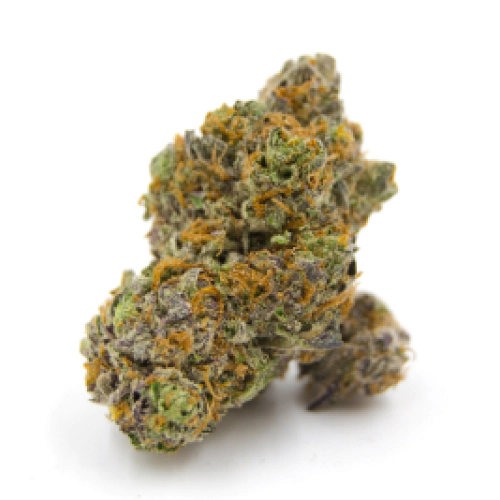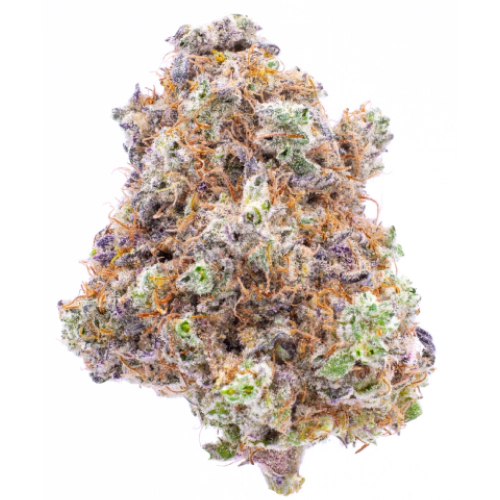THC 12.91 - 17.15%
CBD 0.02 - 0.29%
Effect Giggly
Flavor Apricot
11 - 11%
0.35 - 0.53%
0.07 - 0.22%
Pine, Grapefruit
Energetic
The Lemon Apricot strain is a perfectly balanced hybrid, which consists of 50% of Indica and 50% of Sativa. The parents of this weed are two famous fruity types of cannabis - delicious Lemon Jack and Orange Apricot F2. As you have noticed, the name was taken from the main notes of the amazing flavor. This marijuana is the baby of Compound Genetics. Its THC content is pretty high and varies between 22% and 24%.
The strain inherited great types of terpenes:
This cannabis strain is very delicious. Your smell sense will appear in the theme park of flavors. The resin of the weed produces first-class aromas and flavors of lemon and apricot. In the beginning, you will feel a sweet and fruity taste, which refreshes and cover you with a wave of energy. Then you will experience a tornado of emotions and find yourself in a cloud of diesel and woody aromas. Smokers describe the Lemon Apricot as a box with surprise, as you can experience lime, mint, pear, pine, sage, berry, grape, mango, skunk, sweet, woody, diesel, ammonia, tobacco, blueberry, and grapefruit flavors.
The combination of great terpenes provides outstanding effects. This type of marijuana starts to work very fast and hits you as soon as you feel the first notes of the citrus flavor. Superlifted cerebral effects start after the exhale. The weed doesn’t provide deep sedation, and your mind will be active. You will be filled with energy, and the desire to create will grab your thoughts. There is one more effect, which will help you become very friendly. Everyone will notice you, as you will be in the center of every company carrying on conversations confidently.
The weed helps to cure numerous health problems, for example:
Despite numerous benefits, it is essential to remember about possible side effects, for example:
The Lemon Apricot weed has fat oval-shaped nugs with bright orange hairs. The color is close to light olive green. The trichomes have an amazing tone of golden amber with crystal trichomes, totally covered with sweet sticky resin. Lemon Apricot seeds demonstrate vigorous growth. They don’t demand a lot of attention and are easy to cultivate. You can be impressed with the size because the weed can become large and provide a good harvest. Balanced nutrition can make miracles. Expert growers advise marked vertical development for branches and locating on medium-long internodal distances. The plant can adapt well to the usage of the topping method. Such a technique helps get better growth and provides quick fulfillment of the cultivation space.
The maximum yields indoor 1 - 2 Oz/Ft? (~ 400 g/m?), and outdoor is 15 - 20 Oz/plant (~ 400 g/plant). The maximum flowering time of the plants is 63 days, and the minimum flowering time is 52 days. The harvest is obtained in 57 days.
| THC | Tetrahydrocannabinol, or THC, is a major cannabis chemical compound. It is a psychoactive element that stimulates dopamine release and induces euphoria or happiness. THC-rich strains may be helpful with such conditions as lack of appetite, chronic pains , etc. It is considered to be the primary active marijuana component. | 11 - 11% |
| CBD | Cannabidiol, or CBD, is a major compound in cannabis, which is non-psychoactive. It is also proved to counteract the side effects of the second major component THC. CBD is widely used for medicinal purposes in rubs, oils and so on. It is helpful in muscle pain cases, may treat arthritis and migraines. Even Greeks used it against pain, while Queen Victoria applied it to get rid of menstrual cramps. | 0.35 - 0.53% |
| CBC | Cannabichromene, or CBC, is a minor cannabinoid, meaning that its quantity in cannabis is quite little. Though it has the same origin as CBD and THC, it is different in functions. Without any psychoactive effects, it is an efficient cannabis compound in combating acne and depression. CBC produces analgesic, antibacterial and anti-inflammatory effects. | 0.06 - 0.11% |
| CBG | Cannabigerol, or CBG, is one of the minor cannabis compounds in adult plants. On the other hand, young ones contain a lot of this antibacterial and anti-inflammatory component. During the growth, CBG is converted into different cannabinoids, mostly THC and CBD. The compound itself increases appetite and decreases eye pressure. | 0.07 - 0.22% |
| CBN | Cannabinol, or CBN, is a trace element in cannabis that is considered to be mildly psychoactive. It appears from oxidation THC, exposed to light and heat. CBN is mostly contained in old cannabis and in traditional hashish. It is effective against insomnia, bacterial infections and appetite loss. | 0.1 - 0.25% |
| THCV | Tetrahydrocannabivarin, or THC-V, is a compound contained in cannabis in trace amounts. Even though it is close to THC molecularly, it is different in effects. This compound may be psychoactive only in large amounts. THC-V reduces blood sugar, controls appetite, stimulates bone growth, etc. African Sativa strains are the richest in THC-V. | 0.03 - 0.13% |
| Pinene | Pinene is one of the most widespread terpenes in nature, found in pine trees, basil, nutmeg, parsley, and rosemary. Cannabis containing terpene (alpha-pinene or α-pinene) boasts a strong pine scent. Pinene is responsible for anti-inflammatory, pain-relieving, and anti-anxiety effects. | 0.04% |
| Myrcene | Myrcene (also known as β-myrcene) is one of the most common terpenes found in cannabis, representing more than 20% of the modern marijuana terpene profile. Myrcene has a distinct earthy, musky flavor, resembling cloves. It is responsible for calming and soothing effects of weed. Myrcene is also found in hops, thyme, mango, lemongrass, guava melon. | 0.07% |
| Humulene | Humulene (also known as α-humulene) is one of the major terpenes found in cannabis, contributing to woody, earthy, spicy, herbaceous, and, mainly, floral aromas of cannabis. Used in modern medicine, humulene offers anti-inflammatory, antibacterial, and appetite suppressant effects, which have been well-researched by pharmaceutical companies. | 0.05% |
| Limonene | Limonene (also known as d-limonene) is the second most common terpene in nature and the third most common terpene in cannabis. It has a powerful citrus aroma and can be found in all citruses, including lemons, oranges, grapefruits, limes, juniper, etc. Limonene is known to elevate moods and provide anxiety, depression, and stress relief. | 0.08% |
| Linalool | Linalool (also known as beta linalool, linalyl alcohol, linaloyl oxide, and p-linalool) is one of the rarest terpenes found in cannabis, mostly in small quantities. Linalool is known for its spicy and lavender aroma, bringing relaxation and calming effects. It is also said to provide anti-inflammatory and analgesic properties that can be useful for athletes. | 0.4% |
| Terpinolene | Terpinolene is one of the most common terpenes found in cannabis; however, It's usually presented in small quantities. Is responsible for piney, floral, herbaceous, and even a little bit citrusy aroma of cannabis. Terpinolene can be found in lilacs, nutmeg, and cumin. In cannabis, terpinolene contributes to the sensation of "freshness." Has the potential to reduce the risk of heart diseases. | 0.22% |
| Caryophyllene | Caryophyllene (also known as beta or b caryophyllene) is a terpene found in many herbs and spices, such as black pepper, basil, rosemary, and oregano. Cannabis high in caryophyllene delivers a strong spicy, peppery aroma, resembling cinnamon and cloves. Caryophyllene offers potent anti-inflammatory and sedative effects. | 0.14% |
| Total terpenes content | 1.00% |
THC 12.91 - 17.15%
CBD 0.02 - 0.29%
Effect Giggly
Flavor Apricot
THC 23 - 25%
CBD 0.18 - 0.36%
Effect Giggly
Flavor Skunk
THC 16.5 - 23%
CBD 0.28 - 1.33%
Effect Sedated
Flavor Grape
THC 16.75 - 24.75%
CBD 0.04 - 0.45%
Effect Sleepy
Flavor Flowery
THC 18 - 18%
CBD 0.59 - 0.87%
Effect Tingly
Flavor Sage
THC 19 - 24%
CBD 0.12 - 0.57%
Effect Happy
Flavor Pineapple

THC 14 - 17.2%
CBD 0.36 - 0.68%
Effect Sleepy
Flavor Spicyherbal
THC 19 - 21%
CBD 0.46 - 0.66%
Effect Euphoric
Flavor Lemon
THC 18 - 20.75%
CBD 0.26 - 0.62%
Effect Concentrated
Flavor Apricot

THC 7.5 - 9%
CBD 0.12 - 1.49%
Effect Tingly
Flavor Chestnut
Be the first and share your opinion
Write a Review